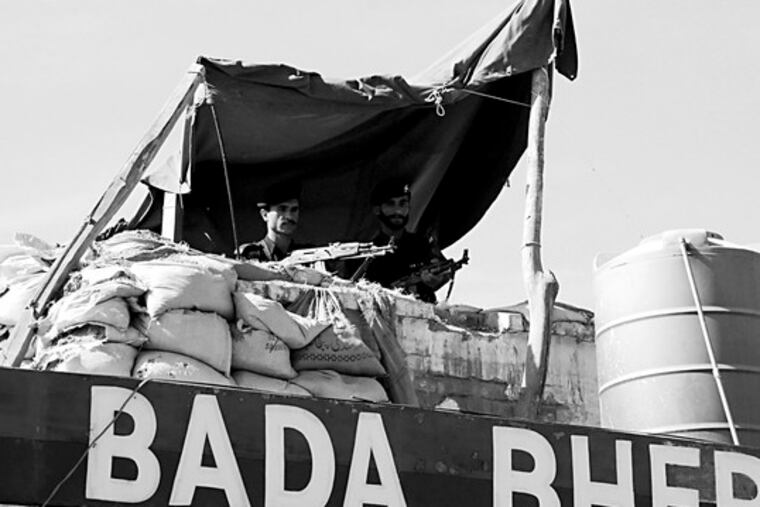Pakistan police losing to insurgents
BADABER, Pakistan - Brothers Mushtaq and Ishaq Ali left the police force, terrified of dying as their colleagues had - beheaded by militants on a rutted village road before a shocked crowd.

BADABER, Pakistan - Brothers Mushtaq and Ishaq Ali left the police force, terrified of dying as their colleagues had - beheaded by militants on a rutted village road before a shocked crowd.
They went straight to the local Urdu-language newspaper to announce their resignation. They were too poor to pay for a personal ad, so the editor of the Daily Moon, Rasheed Iqbal, published a news story instead. He has run dozens like it.
"They just want to get the word out to the Taliban that they are not with the police anymore so they won't kill them," said Iqbal.
Outgunned and out-financed, police in northwestern Pakistan are fighting a losing battle against insurgents, dozens of interviews show. They are dying in large numbers, and many survivors are leaving the force.
The number of terrorist attacks against police has gone up from 113 in 2005 to 1,820 last year, according to the National Police Bureau. The death toll for policemen in that time has increased from nine to 575. In the northwest alone, 127 policemen have died so far this year in suicide bombings and assassinations, and 260 have been wounded.
The crisis means the police cannot do the nuts-and-bolts work needed to stave off the Taliban and al-Qaeda-fueled insurgency.
While the military can pound mountain hideouts, analysts and local officials say it is the police who should hunt down insurgents, win over the people, and restore order.
"The only way to save Pakistan is to think of extremism and insurgency in North West Frontier Province as a law enforcement issue," said Hassan Abbas, a South Asia expert at Harvard University's Belfer Center Project for Science. "Rather than buying more F-16s, Pakistan should invest in modernizing its police."
In the Swat Valley, militants have turned a once-idyllic mountain getaway into a nightmare of bombings and beheadings despite a six-month military operation to root them out. About 300 policemen have fled already.
On a recent evening in Mardan, Akhtar Ali Shah had just slipped out of his deputy police inspector's uniform to head home.
In an escort vehicle, a half-dozen of his guards had inched outside the giant white gates of the police station for a security check.
The bomb exploded moments later. Through a cloud of dust and dirt, Shah saw five of his six guards lying dead near the blood-smeared gate. The head of the suicide bomber rested nearby.
Shah said his men lack the expertise, training or equipment to hunt down big-name terrorists or even identify would-be suicide bombers.
"These people are among us. Look here: Our technical capabilities are so weak that we don't even have the ability to listen or to trace these phone calls," he said, holding up his cell phone.
Most of Pakistan's 383,000 police are poorly paid constables. Malik Naveed Khan, who heads the force of 55,000 in the North West Frontier Province, said he has one policeman for every 364 miles of some of the most dangerous terrain in the world.
Khan said his men fight with World War II-vintage, single-shot weapons against the rapid-fire Kalashnikovs carried by militants. The police go out on patrol without bulletproof vests or helmets.
A constable makes about $80 a month, compared with about $170 for a Taliban foot soldier, Khan said.
"Where is their money coming from?" he asked.
He said he believes a lot of it comes from the flourishing opium trade in Afghanistan; donations from devout Muslims, and extortion of wealthy Muslims in the Middle East.